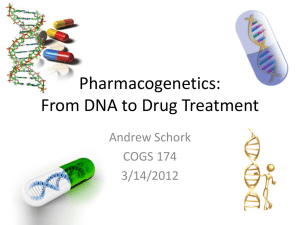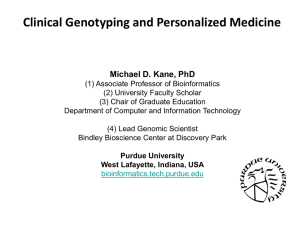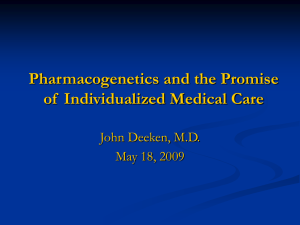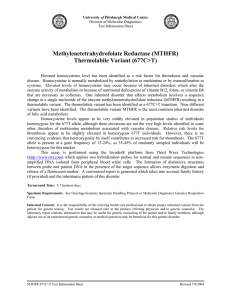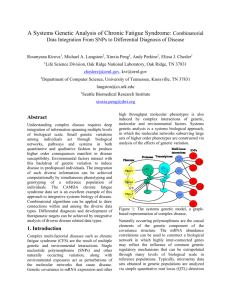pharmacogenetics and pharmacogenomics in
advertisement
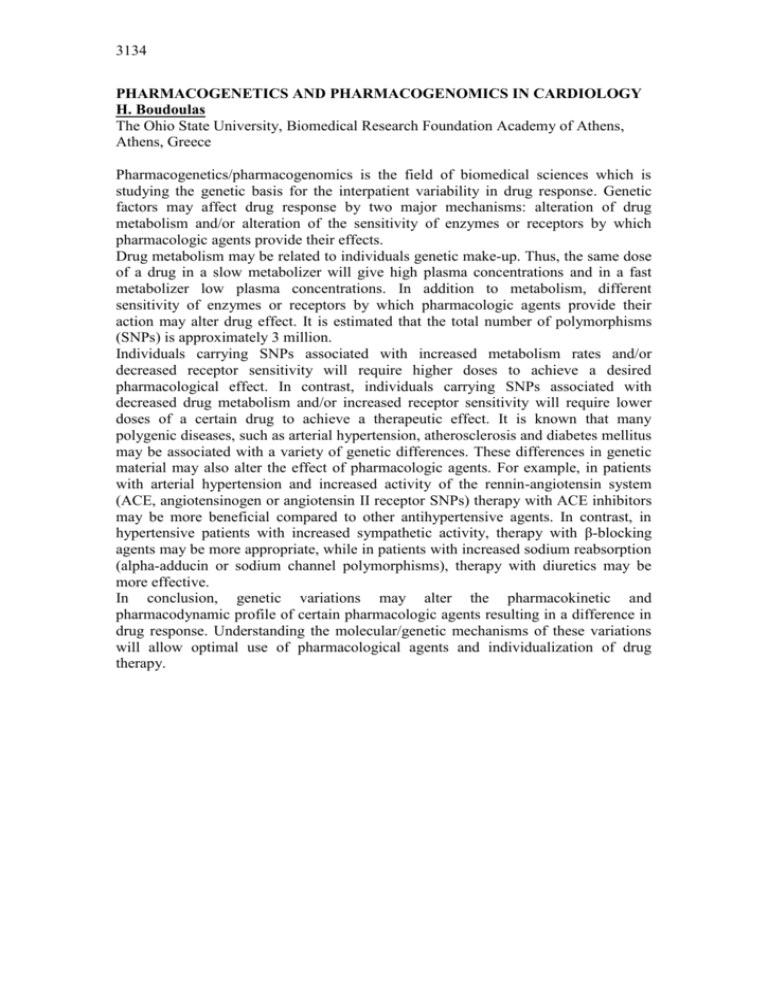
3134 PHARMACOGENETICS AND PHARMACOGENOMICS IN CARDIOLOGY H. Boudoulas The Ohio State University, Biomedical Research Foundation Academy of Athens, Athens, Greece Pharmacogenetics/pharmacogenomics is the field of biomedical sciences which is studying the genetic basis for the interpatient variability in drug response. Genetic factors may affect drug response by two major mechanisms: alteration of drug metabolism and/or alteration of the sensitivity of enzymes or receptors by which pharmacologic agents provide their effects. Drug metabolism may be related to individuals genetic make-up. Thus, the same dose of a drug in a slow metabolizer will give high plasma concentrations and in a fast metabolizer low plasma concentrations. In addition to metabolism, different sensitivity of enzymes or receptors by which pharmacologic agents provide their action may alter drug effect. It is estimated that the total number of polymorphisms (SNPs) is approximately 3 million. Individuals carrying SNPs associated with increased metabolism rates and/or decreased receptor sensitivity will require higher doses to achieve a desired pharmacological effect. In contrast, individuals carrying SNPs associated with decreased drug metabolism and/or increased receptor sensitivity will require lower doses of a certain drug to achieve a therapeutic effect. It is known that many polygenic diseases, such as arterial hypertension, atherosclerosis and diabetes mellitus may be associated with a variety of genetic differences. These differences in genetic material may also alter the effect of pharmacologic agents. For example, in patients with arterial hypertension and increased activity of the rennin-angiotensin system (ACE, angiotensinogen or angiotensin II receptor SNPs) therapy with ACE inhibitors may be more beneficial compared to other antihypertensive agents. In contrast, in hypertensive patients with increased sympathetic activity, therapy with β-blocking agents may be more appropriate, while in patients with increased sodium reabsorption (alpha-adducin or sodium channel polymorphisms), therapy with diuretics may be more effective. In conclusion, genetic variations may alter the pharmacokinetic and pharmacodynamic profile of certain pharmacologic agents resulting in a difference in drug response. Understanding the molecular/genetic mechanisms of these variations will allow optimal use of pharmacological agents and individualization of drug therapy.
